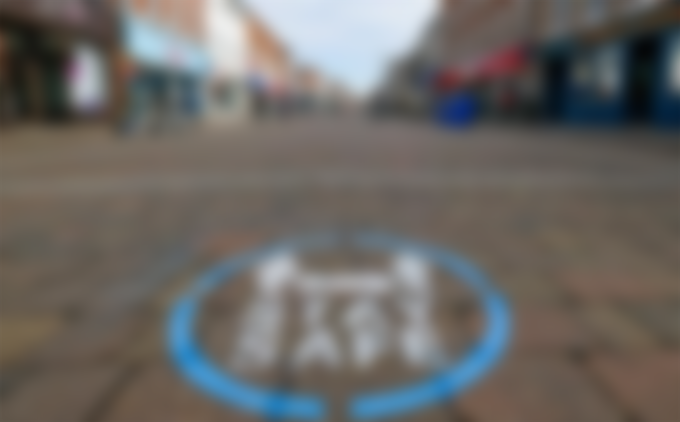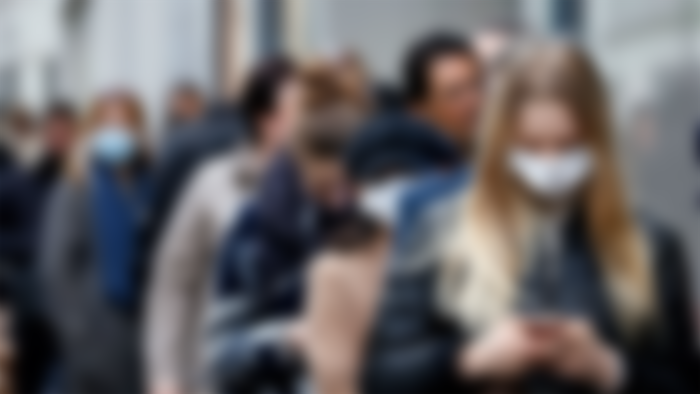Of course, all of us, especially myself and my family, were affected by this pandemic in different ways. Some of us continued to work outside during long working hours. Some of us have tried to adapt to our home-office routine for the first time. Some of us were more psychologically affected during this process and even received psychologist or psychiatrist support, therapy. Undoubtedly, we all felt the impact of the pandemic, from seven to seventy.

However, with the decrease in the number of cases, life is gradually normalizing. We are slowly starting to return to our old routines. Some of us have even returned. However, there are some things we should talk about and be aware of about this normalization process. Are we ready to go out? Is there a psychology of going out? We often talk about normalization. How should our new normal be? How can we prepare ourselves for this normal?
Most of us have the same questions in these days when we stay at home and rarely take the streets; How will the normalization process be? How will our lives and work environments be affected? Will people still be able to travel on crowded subways with peace of mind? Will we be able to go to restaurants and eat carefree again? When will we be able to return to crowded office buildings when we can work from Zoom at the computer?
There is a term we often cite on the agenda right now. "Our new normal." As the number of cases decreases, we talk about returning to normal, but this "normal" is not always what we are used to. There are a few things we should pay attention to in our new normal. The most prominent of them are social distance and wearing a mask. I would like to mention a few things about the difficulties encountered in the face of these new habits that we need to acquire.
Social Distance Rule
In the normalization process, we continue to keep a social distance of 1.5 meters between us and people in order to prevent the transmission of Corona and protect ourselves. Maybe we've never experienced this before. Moreover, as a friendly society, we actually love to be together, to shake hands and hug. However, we need to be careful to protect ourselves and others. As long as we act according to the rules, we should think that this process will pass in a short time and we should get this motivation.

It is important to have social distance between us and people, but there is another aspect that needs to be discussed. We need to make this distance in a controlled and calm manner. We must keep calm and not panic. We encounter quite a lot in therapy sessions. People can complain about worries such as "what if I get caught in the corona" after going out. Even if they have taken the necessary precautions, they are afraid of getting caught in the corona. It should not be forgotten that there is nothing to worry about after you calmly protect yourself with the necessary and appropriate precaution.
The Psychology of Wearing a Mask
Another hot topic for our new normal is to wear a mask. Wearing a mask has become a necessity in order to reduce the risk of corona contamination. Some Asian countries, though in a situation quite common and customary to wear a mask, so this situation is not familiar to Western countries and Turkey. Therefore, we are trying to adapt to this new routine. Some people have no difficulty wearing a mask, while others state that they have difficulties in this situation. There are several reasons for this.

Individuals may think that wearing a mask limits freedom and comfort. In the face of this situation, the presence of the mask disturbs them very much and they can even say that they are contracted. However, there is another interesting reason why we have difficulty wearing masks. We have a strong psychological tendency to see people's facial expressions. This trend is actually an evolutionary impulse that we have acquired. When we look at people's faces, we can make inferences about what is going on in their minds, which makes us feel safer.
Wearing a mask during the normalization process is unfamiliar to us and it is the first time we encounter it. We may find it difficult to get used to this situation. It will be helpful not to grapple with a mask in times of difficulty, to think that its presence is beneficial for us and to accept it. Don't struggle with the thought of wearing a mask. This can make the adjustment process difficult. Maybe it makes you relax, maybe you constrict, maybe you don't feel comfortable .. Just leave these thoughts as they are.
This will be good for your adjustment process. Also, when we look at a recent study, we see an interesting result. In this study, it is seen that as the number of people wearing masks in the society increases, other people accept wearing masks more easily and begin to feel less uncomfortable. Beep-blop! Let's tip! So maybe you can remind yourself that you feel uncomfortable and that you are not alone and that many people are trying to wear masks along with you. Who knows, maybe you can inspire others to wear masks with your mask.
Normalization Process and the Psychology of Going Out
When we consider the first emergence date of the coronavirus, we find ourselves in a period that we have never experienced in our lives for about two months. We are afraid of catching the virus when we go out, we try to take many precautions such as trying to maintain our social distance with people and wearing masks. Actually, we can say that we almost got used to a new routine. As such, the normalization process may scare us a little. This is a very natural process. We are trying to adapt again.

Even before this epidemic broke out, activities such as being on public transport, using the subway, and being close to people on buses were perhaps difficult and worrying situations for some of us. After the corona process, these situations may have become even more anxious. Or it may be causing you anxiety to think that you are doing these activities now, when you normally wouldn't worry. Without realizing the rate of exposure to Corona Virus, many of us can fear being sick or the possibility of something happening to us from this disease. This can cause us to maintain our social life with great anxiety and even to exhibit avoidant behaviors. When we look at all these situations, we can actually mention that even going out on the street has a psychology in the current period. It is possible to say that going out on the street is not only a physical activity, but also a psychological activity.



